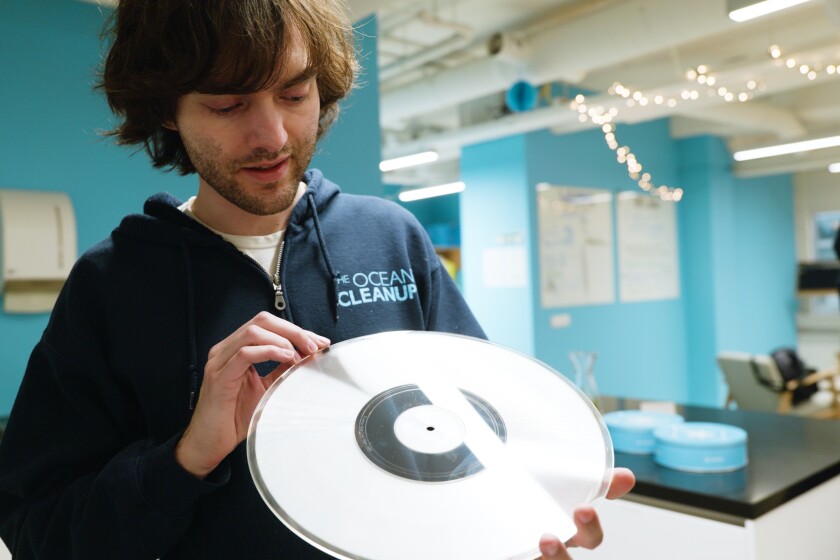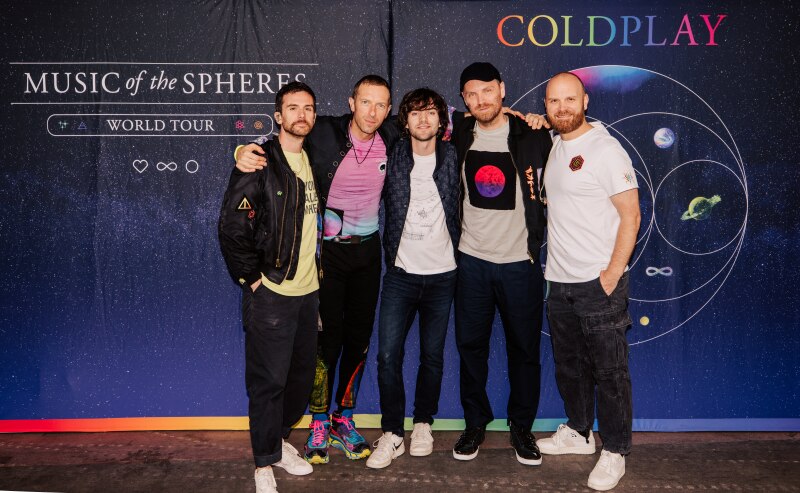Coldplay’s Next Album Will be on Vinyl Made from River Plastic

The Ocean Cleanup
Marine plastic waste is a significant issue, but for the past few years, the non-profit organization the Ocean Cleanup has been reducing floating trash in oceans and rivers. Now, the pop-rock band Coldplay plans to use some of this waste for a limited special edition of its upcoming album.
The Ocean Cleanup originated in 2012 when a Delft University of Technology student proposed a solution for the vast plastic pollution in our oceans.
In 2019, Boyan Slat’s concept became reality as the prototype System 001/B collected its first batch of floating waste from the Great Pacific Garbage Patch and brought it ashore for processing. The following year, sunglasses crafted from this recycled waste went on sale.
Interceptors Tackle Ocean Plastics at the Source
Subsequent missions began to make progress in reducing the massive Garbage Patch, but the non-profit also focused on stopping plastic waste at its source. In late 2019, non-profit organizations deployed the first Interceptor barges in Asian rivers, employing booms to capture trash before it could reach the ocean.
More deployments followed, and Coldplay joined the initiative in 2021 by funding a new vessel called Neon Moon 1 for use in Malaysia.
“Without action, there could be more plastic than fish in the oceans by 2050, which is why the Ocean Cleanup’s work is so vital,” said the award-winning pop-rock band at the time. “We’re proud to sponsor Interceptor 005 – aka Neon Moon 1 – which will capture thousands of tons of waste before it reaches the ocean.”

The Ocean Cleanup
Coldplay and The Ocean Cleanup Turn River Waste into Limited Edition Album
Last year, Coldplay funded a second Interceptor launched in Indonesia, and now the collaboration has created a limited edition album using waste plastic collected from Guatemala’s Rio Las Vacas river by the Ocean Cleanup.
A limited number of Notebook Edition units of Coldplay’s upcoming Moon Music LP will feature a blend of 70% intercepted plastic river waste and 30% recycled plastic bottles and other sources, rather than traditional vinyl.
As highlighted in our coverage of bio-based EcoVinyl earlier this year, we expect the production of approximately 180 million standard vinyl albums worldwide in 2023 to consume around 30,000 tonnes of PVC.
At the end of their lifespan, these records may add to our waste problem.
Coldplay and the Ocean Cleanup collaborated on quality control and testing, working with manufacturers Biosfera GT, Compuestos y Derivados S.A., Morssinkhof, and Sonopress.
The Notebook Edition will include a 28-page hardcover book with lyrics, hand-drawn illustrations, and more.
A special CD made from 90% recycled polycarbonate is also part of the package. It is set for sale starting in October and can be pre-ordered now for $39.99. More details are available in the video below.
Read the original article on: New Atlas
Read more: A New Method Can Make Plastics More Environmentally Friendly










